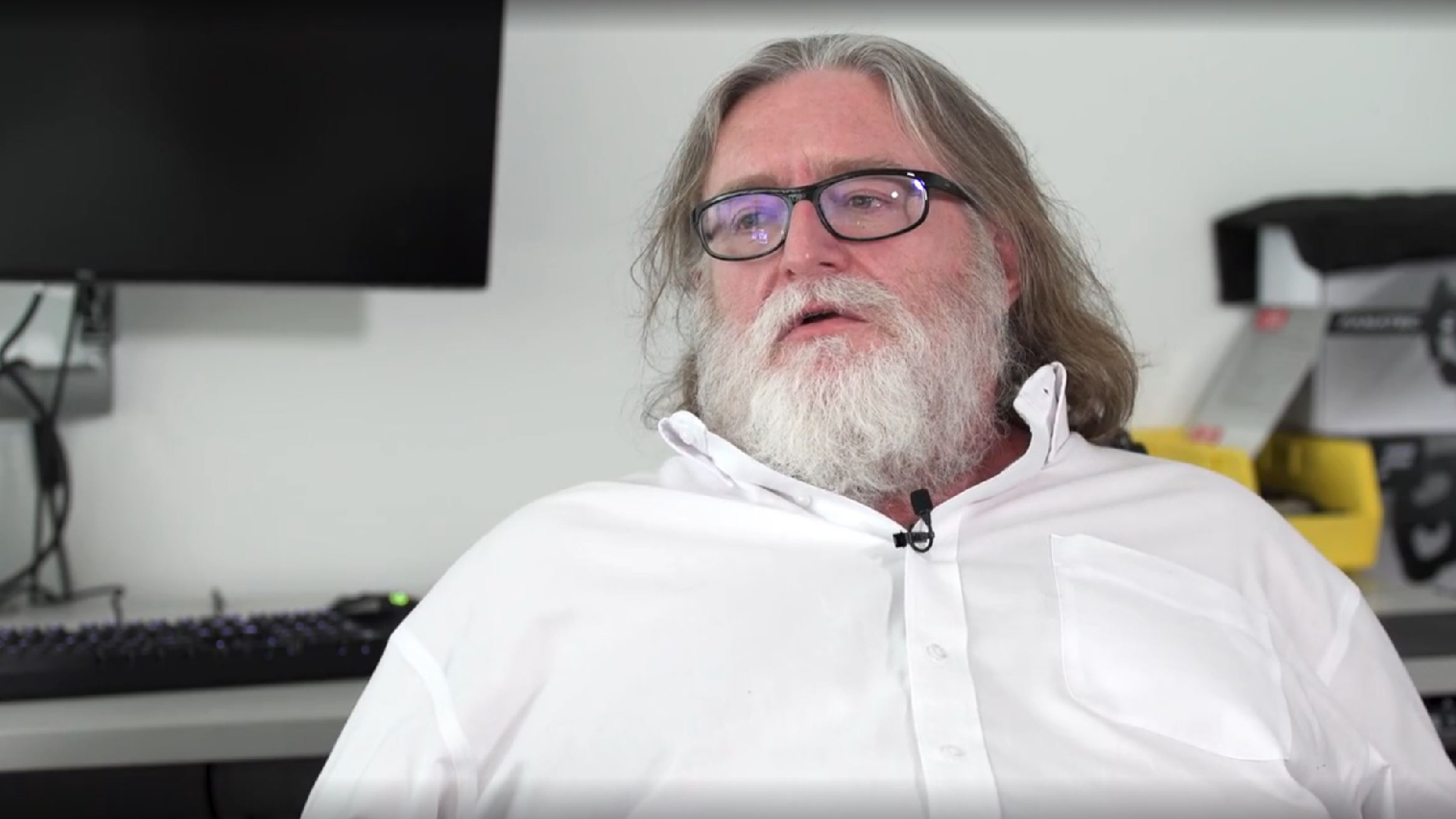Gabe Newell: 'We're way closer to The Matrix than people realize'
Valve's CEO opens up about Half-Life: Alyx, Valve, and the future of entertainment as a whole.

In an interview with IGN, Valve CEO Gabe Newell reflects on the company's history and the motivation for making Half-Life: Alyx a VR game. The whole thing is worth a watch, in part because Newell rarely does interviews, but I was most interested in his forward-looking comments on computer-brain interfaces.
"The area that I'm spending a lot of time on has been growing out of a bunch of research that occurred a while ago on brain-computer interfaces," Newell said. "I think that that's kind of long lead stuff, so that's kind of the background thread that I get pulled back into when other things aren't demanding my attention."
Human brains can already communicate with computers directly, though in very limited ways compared to the sci-fi systems of The Matrix or William Gibson's Neuromancer, where physical reality can be totally replaced with a simulated, virtual one. But Newell doesn't think that kind of sci-fi tech is as far off as it might seem.
"We're way closer to The Matrix than people realize," Newell said. "It's not going to be The Matrix—The Matrix is a movie and it misses all the interesting technical subtleties and just how weird the post-brain-computer interface world is going to be. But it's going to have a huge impact on the kinds of experiences we can create for people."
When it comes to actually designing this technology, perceiving the nature of the problems ahead is like "trying to describe the internet to somebody who'd never used the internet before," said Newell. But as one example, he thinks that sending information to someone's visual or motor cortex will be a much easier than making someone feel cold.
"It turns out that your brain has really good interfaces for some things and really badly designed, kludge-y interfaces for doing other things," he said. "And the fact that your immune systems gets involved in your perceptions of temperature means there are all sorts of weird parts of your brain that participate in the sensation of being cold, whereas things like your motor cortex or your visual cortex are much more tractable problems. And that's what I mean. We're going to learn a lot as we proceed as to what things work and what things don't, what things are valuable to people and what things are party tricks that don't really matter in the long run."
As for how that kind of technology might influence gaming? "I think that it's an extinction-level event for every entertainment form that's not thinking about this," Newell said. "If you're in the entertainment business and you're not thinking about this, you're going to be thinking about it a lot more in the future."
Keep up to date with the most important stories and the best deals, as picked by the PC Gamer team.
What Newell didn't give much insight to was the depth of his own research into the topic or how it might affect Valve as a company and what products it seeks to create next. But, given that brain-computer interfaces is a fledgling area of research, I wouldn't expect the Steam Brain to be announced anytime soon.
With over 7 years of experience with in-depth feature reporting, Steven's mission is to chronicle the fascinating ways that games intersect our lives. Whether it's colossal in-game wars in an MMO, or long-haul truckers who turn to games to protect them from the loneliness of the open road, Steven tries to unearth PC gaming's greatest untold stories. His love of PC gaming started extremely early. Without money to spend, he spent an entire day watching the progress bar on a 25mb download of the Heroes of Might and Magic 2 demo that he then played for at least a hundred hours. It was a good demo.


